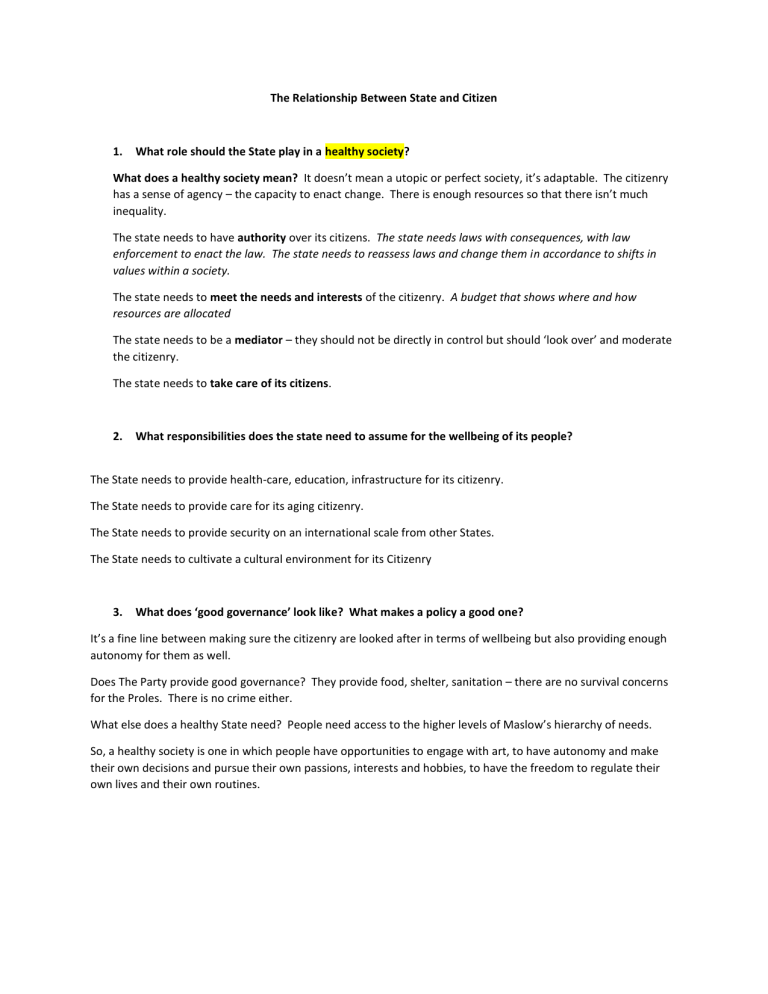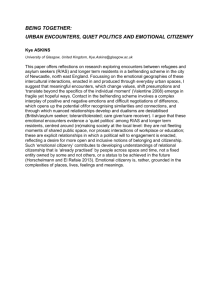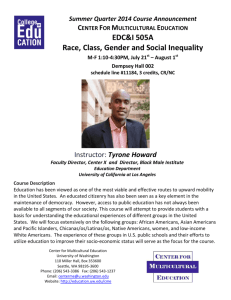State & Citizen Relationship: Role, Responsibilities, Governance
advertisement

The Relationship Between State and Citizen 1. What role should the State play in a healthy society? What does a healthy society mean? It doesn’t mean a utopic or perfect society, it’s adaptable. The citizenry has a sense of agency – the capacity to enact change. There is enough resources so that there isn’t much inequality. The state needs to have authority over its citizens. The state needs laws with consequences, with law enforcement to enact the law. The state needs to reassess laws and change them in accordance to shifts in values within a society. The state needs to meet the needs and interests of the citizenry. A budget that shows where and how resources are allocated The state needs to be a mediator – they should not be directly in control but should ‘look over’ and moderate the citizenry. The state needs to take care of its citizens. 2. What responsibilities does the state need to assume for the wellbeing of its people? The State needs to provide health-care, education, infrastructure for its citizenry. The State needs to provide care for its aging citizenry. The State needs to provide security on an international scale from other States. The State needs to cultivate a cultural environment for its Citizenry 3. What does ‘good governance’ look like? What makes a policy a good one? It’s a fine line between making sure the citizenry are looked after in terms of wellbeing but also providing enough autonomy for them as well. Does The Party provide good governance? They provide food, shelter, sanitation – there are no survival concerns for the Proles. There is no crime either. What else does a healthy State need? People need access to the higher levels of Maslow’s hierarchy of needs. So, a healthy society is one in which people have opportunities to engage with art, to have autonomy and make their own decisions and pursue their own passions, interests and hobbies, to have the freedom to regulate their own lives and their own routines.




